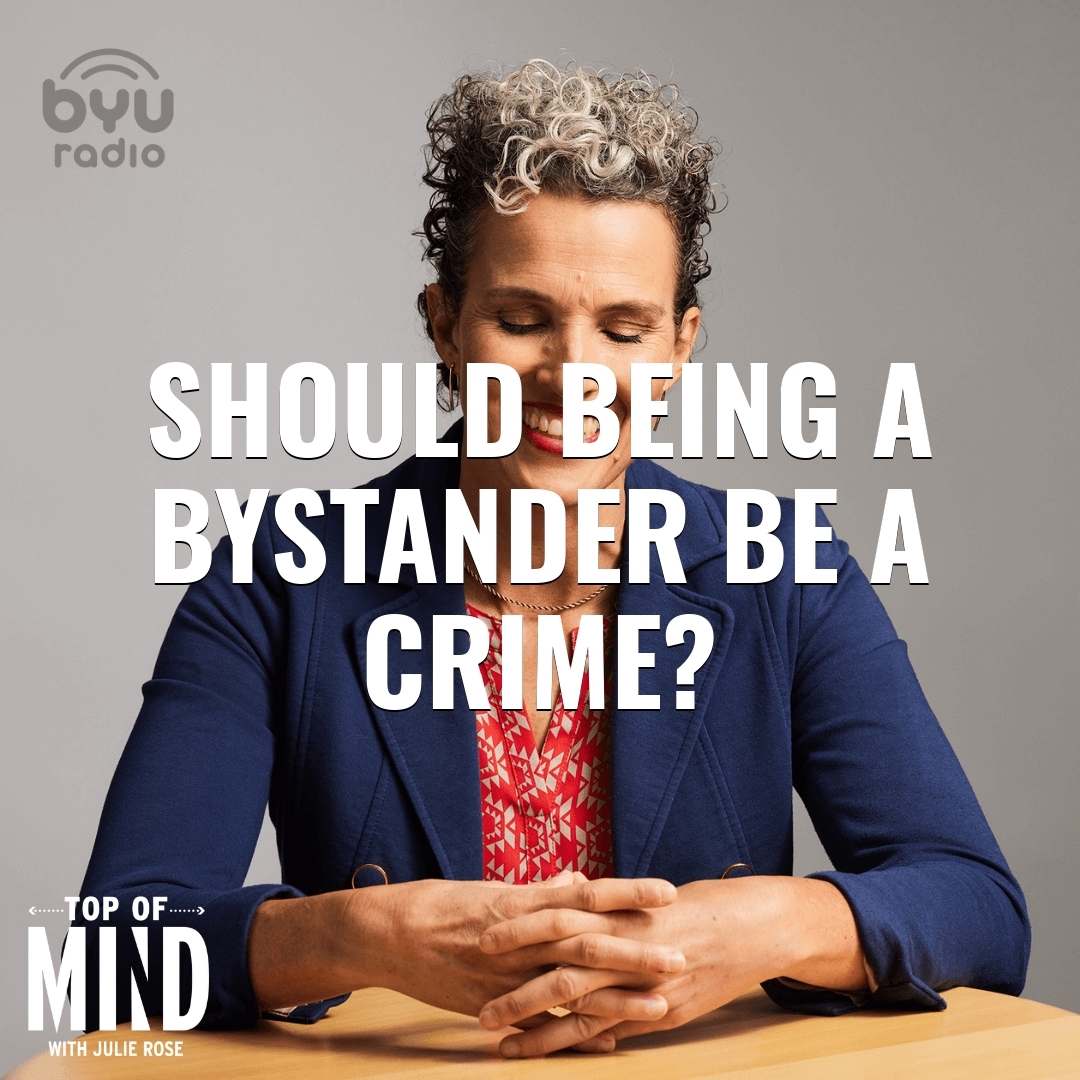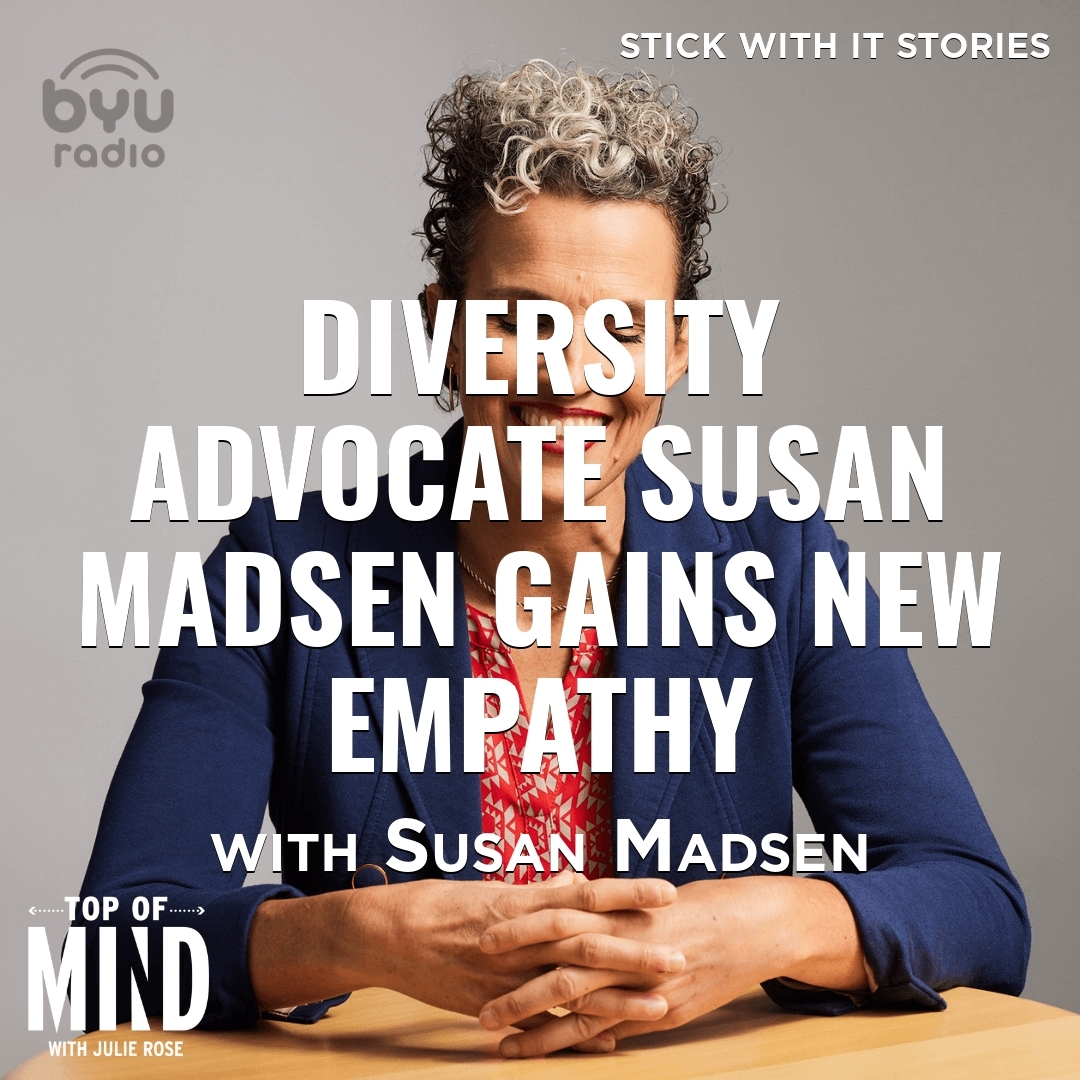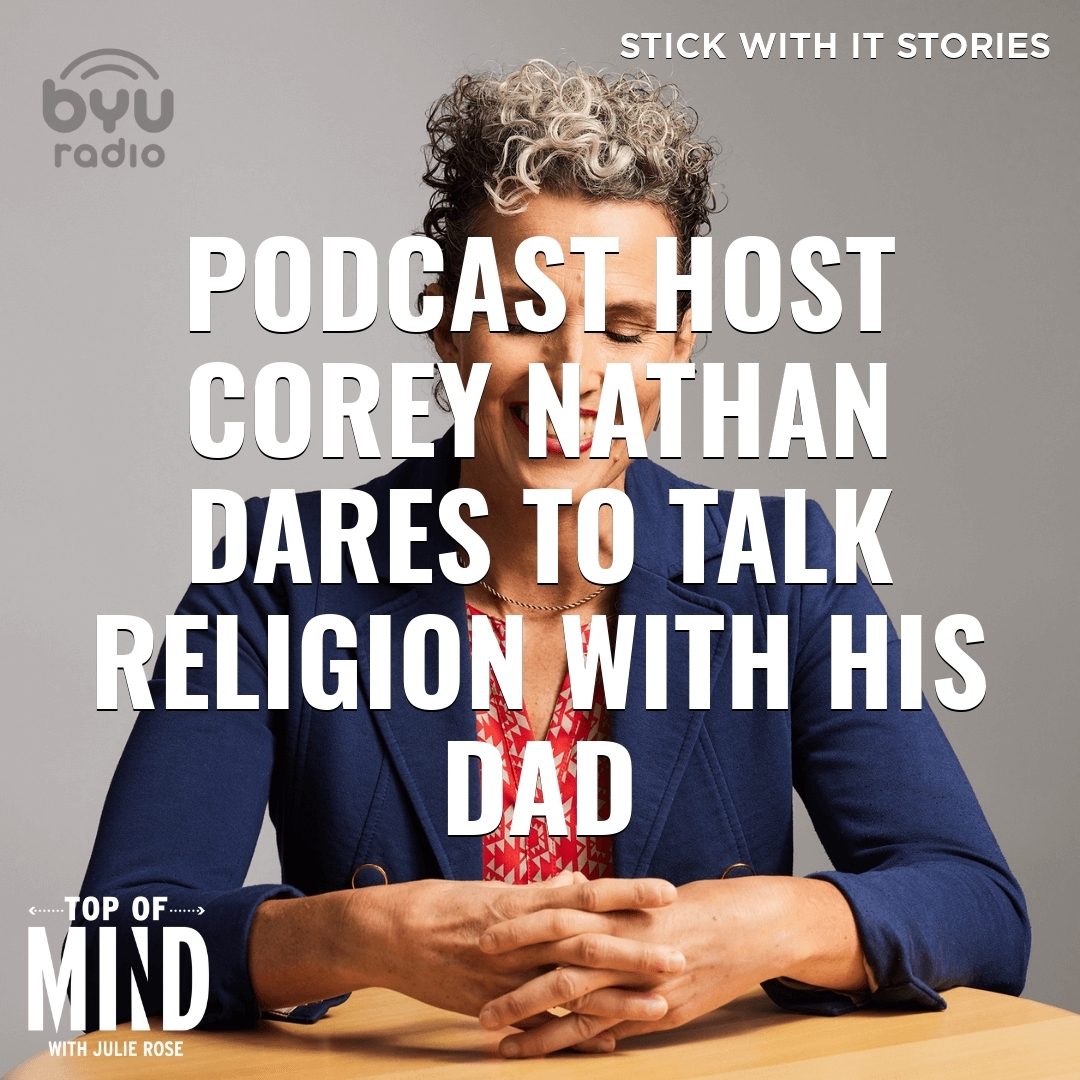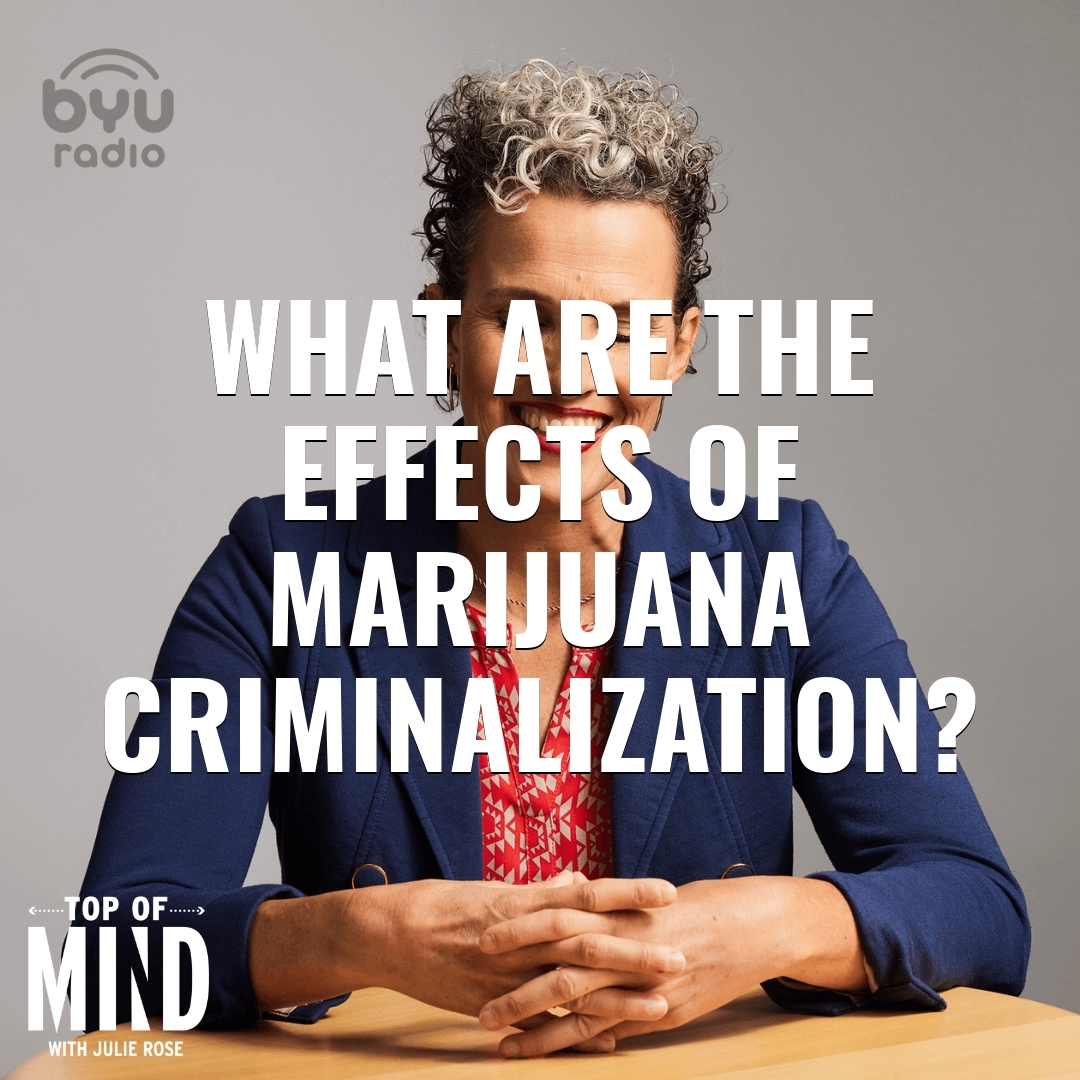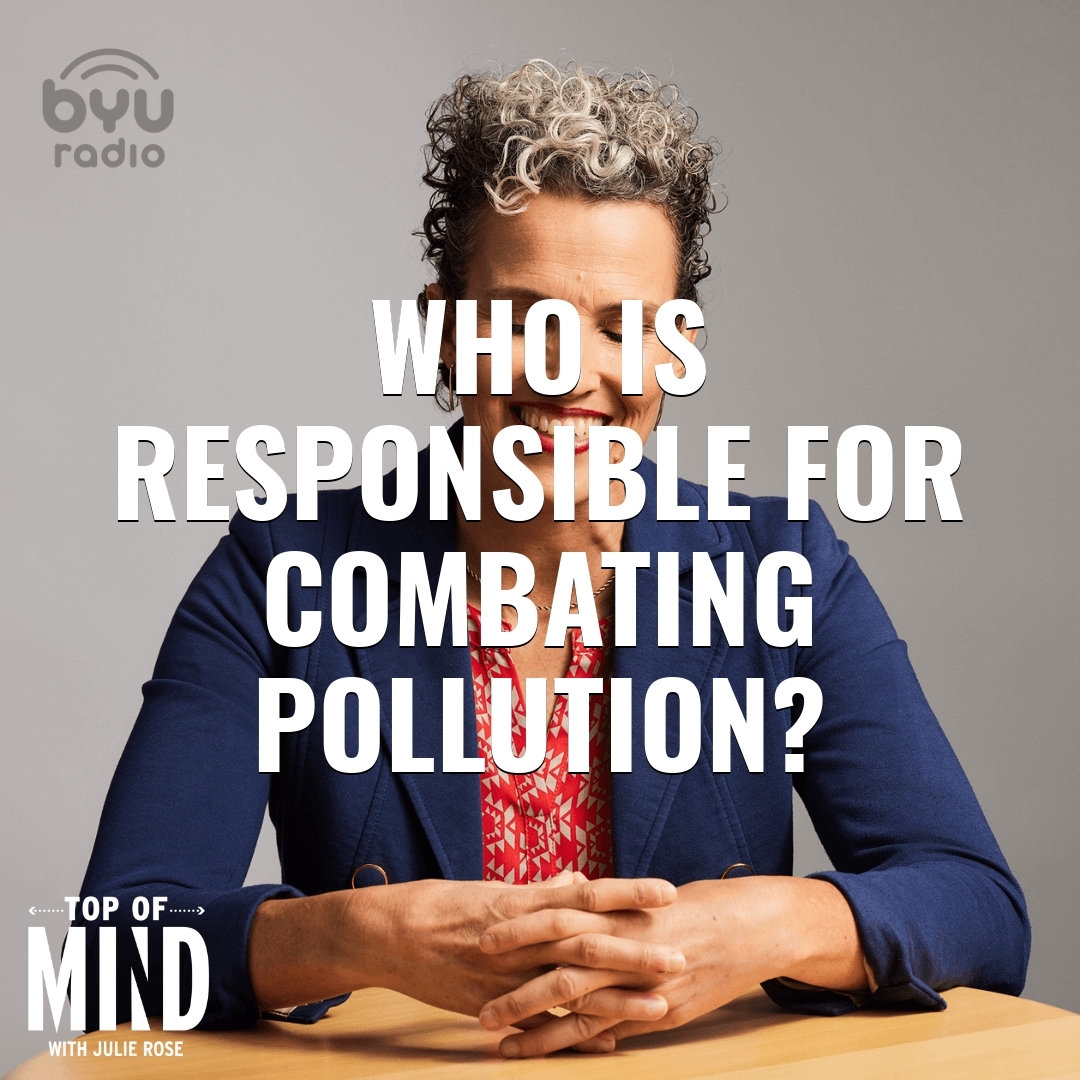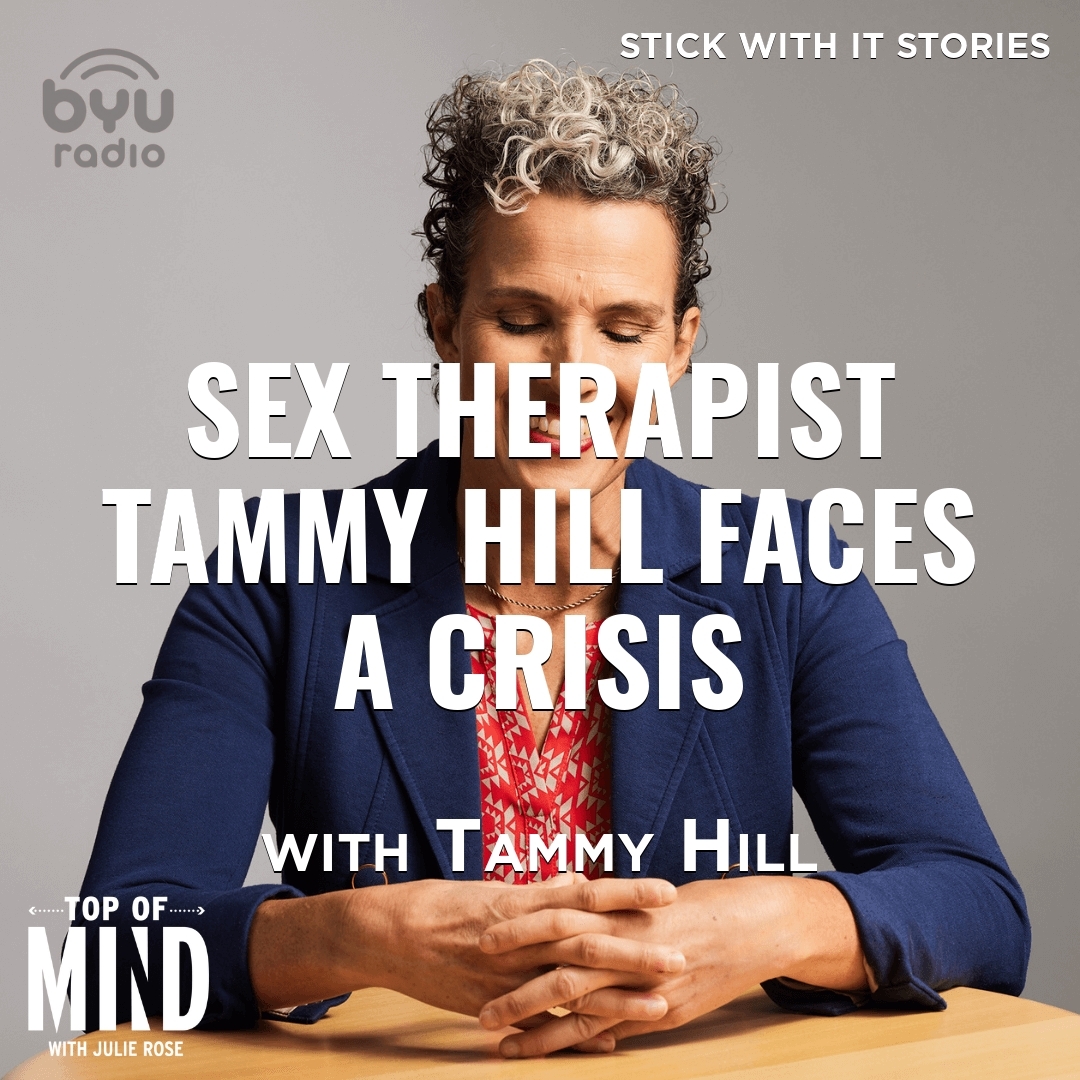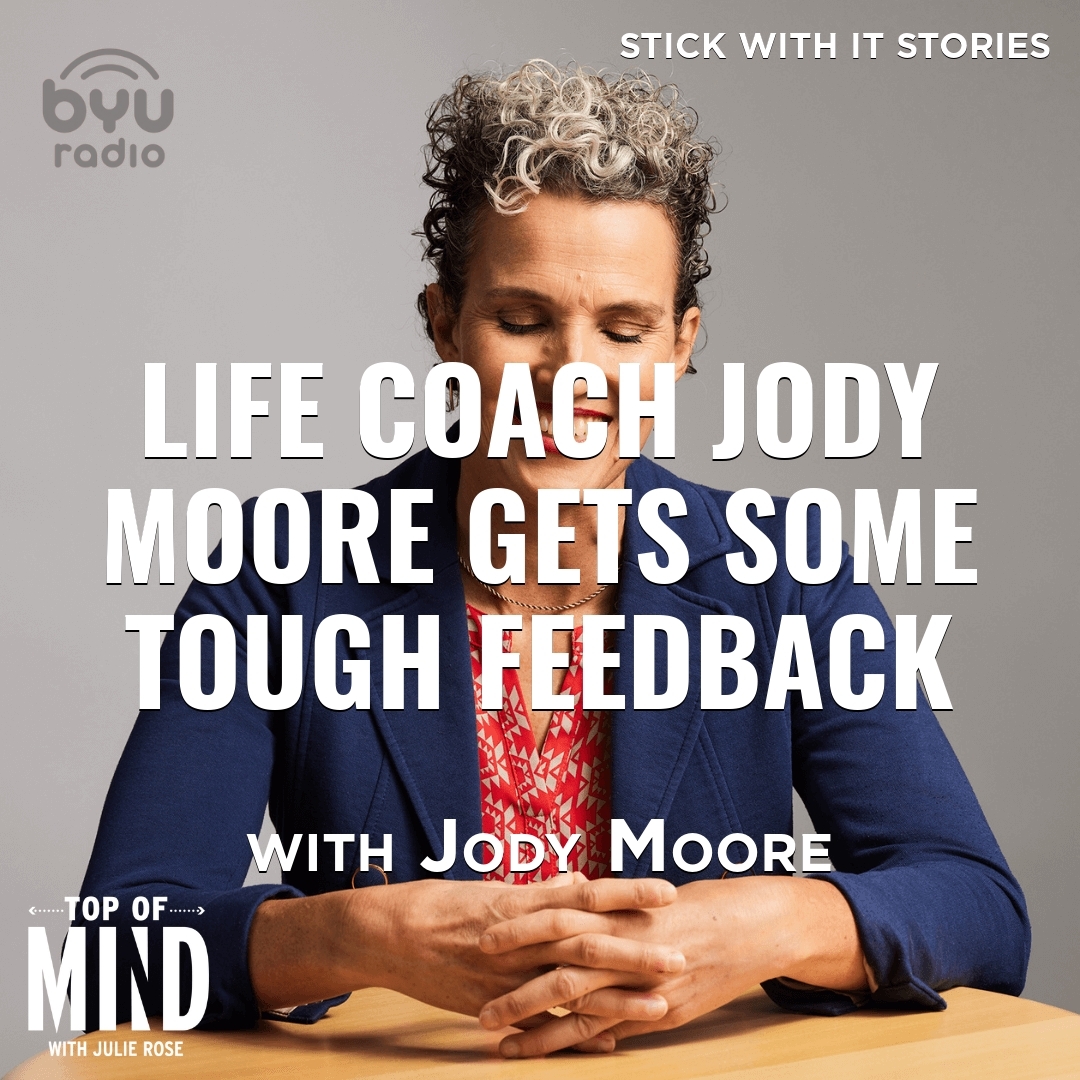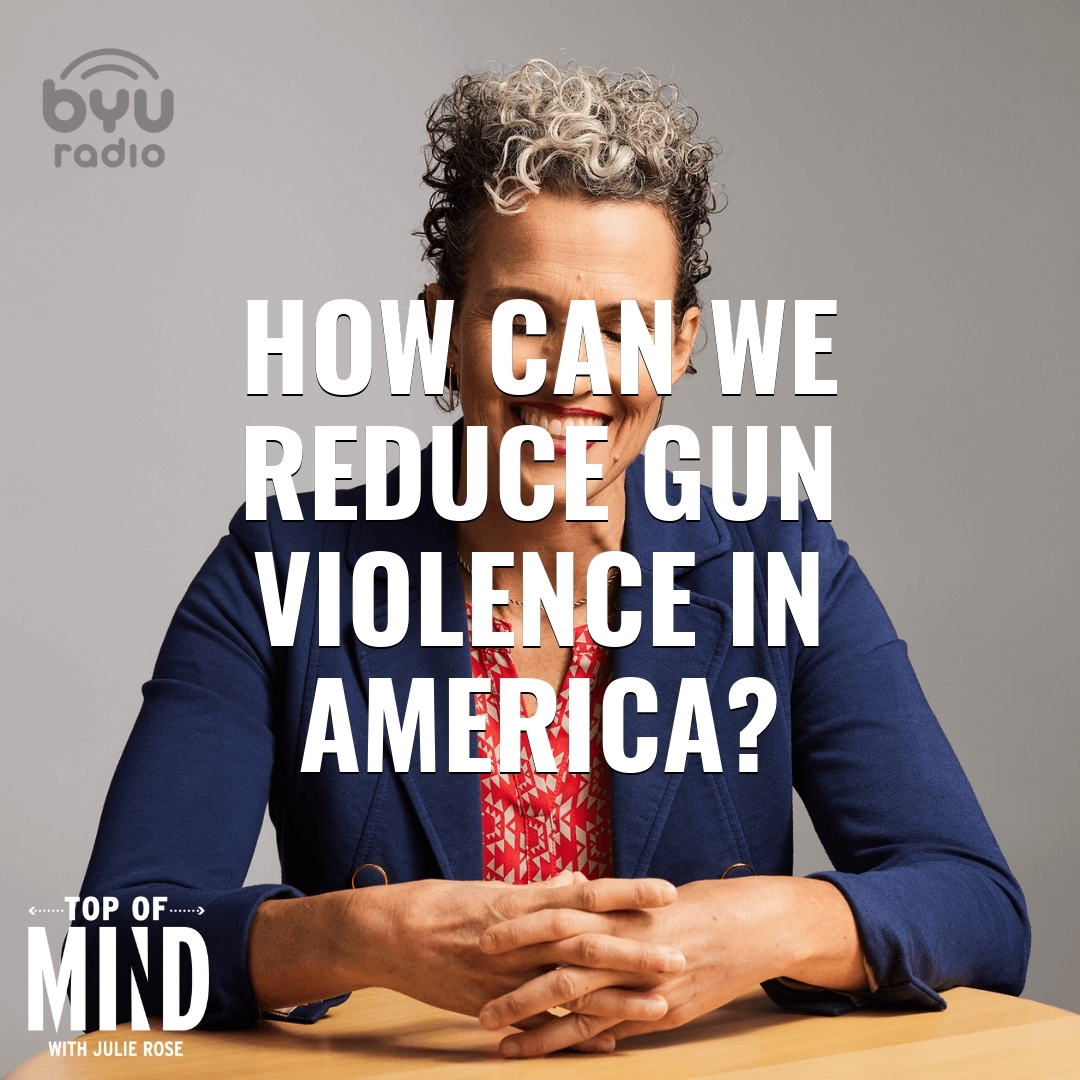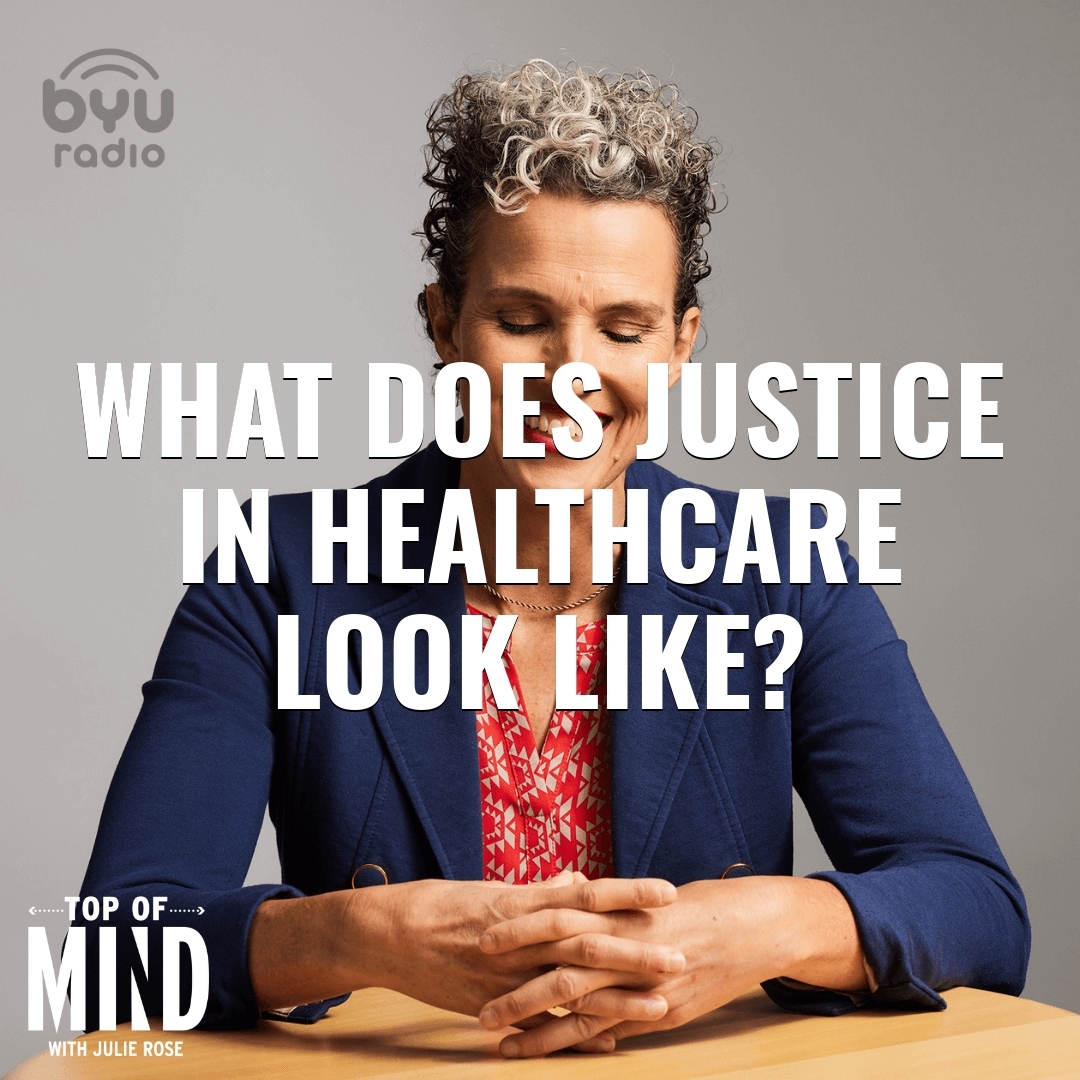Tackling tough topics in a way that will help you feel more empathy and empower you to become a better citizen, kinder neighbor, and more effective advocate. For people who are turned off by the divisive nature of the news, but still want to engage with important issues. Hosted by journalist Julie Rose, Top of Mind is a production of BYUradio.
We all like to think we’d help someone in danger, but too often people stand by because they’re afraid to intervene or assume someone else will do it. Should it be a crime to be a bystander? What if you don’t witness the harm, but you suspect it’s happening, and you’re in a position to intervene? Does failing to stop the abuse make you an enabler? In this week’s podcast episode, we explore the impact of people choosing to stand by or enable abuse. We learn about an effort to pass laws that would put people in jail if they fail to help. We also hear from a young man whose heroic intervention on a subway platform went viral, and we discover how to resist the urge to be a bystander and become a helper instead.
Our “Stick With It” conversation series on the Top of Mind podcast continues with diversity advocate Susan Madsen’s story about being invited to attend an event and realizing she was the only white person in a room of several hundred people. Sticking with the discomfort she felt at the event gave her a window into how people of color must feel often in Madsen’s majority white community. That new measure of empathy served as an important motivation for Madsen in her research and advocacy with the Utah Women and Leadership Project.
Our “Stick With It” conversation series on the Top of Mind podcast continues with Corey Nathan, host of “Talkin’ Politics and Religion Without Killin’ Each Other.” He tackles tough topics on his podcast all the time, but talking with his Jewish father about his decision to become a Christian seemed doomed to failure. It would have been easier to not talk about it, says Corey. But he and his dad made a different choice. Their relationship will never be the same.
A decade ago, there was not a single state where it was legal to use recreational marijuana. Today, nearly half of Americans live in states where pot is now legal. And many more are in states where medical marijuana has been legalized. But the federal government maintains that the drug has no currently accepted medical use and a high potential for abuse. How do we make sense of that? Our nation’s laws about marijuana are remarkably inconsistent. What are the effects of marijuana criminalization? And who gets caught in the middle? On this podcast episode, we talk to a man wrongly imprisoned for marijuana charges, a cannabis criminal justice reform advocate, a primary care doctor who’s been prescribing medical cannabis for years, and a drug historian to explains why the origin of our nation’s patchwork of marijuana laws.
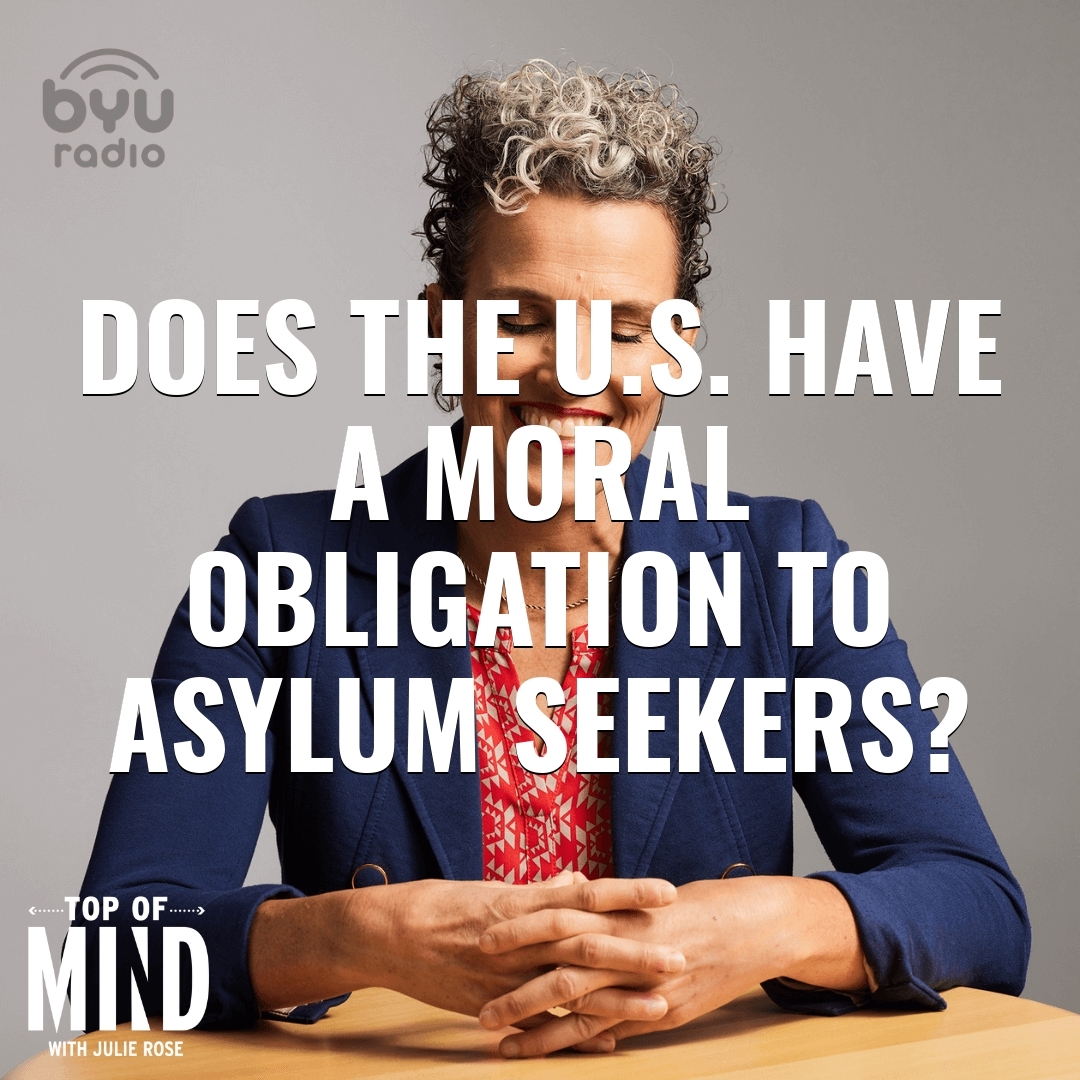
People all around the world look to the United States as a land of opportunity and safety. Every month, tens of thousands of people arrive at US border checkpoints and ask to be granted asylum. Over the last decade, the number of people showing up at the southern U.S. border seeking protection has increased five-fold to more than 200,000 every month. That huge increase has so overwhelmed the system that getting a final answer often takes years. There is bipartisan agreement that the asylum system is broken. How we fix the backlog, though, depends a lot on how we answer the question at the heart of today's podcast episode: what is our obligation to asylum seekers? Are we responsible for taking these individuals in? We’ll be hearing from two previous asylum seekers about the challenges of seeking asylum in the United States, a writer who had an eye-opening experience learning how America’s asylum process differs from other countries, and two former immigration judges with differing perspectives on how we should implement asylum law in the United States. As we hear each of these perspectives, we’ll consider this question: what do we owe people who are no longer safe or able to prosper in the countries where they happen to have been born?
When we drink the water, breathe the air and dig in the soil in our communities, we expect it to be safe. In the United States, we have regulatory agencies meant to protect us, but they sometimes fall short. Places populated by people of color or those in poverty are more likely to suffer the consequences. Who is responsible for combating pollution? How can we, as individuals, contribute to a cleaner environment? In this podcast episode, we explore various ways that Americans are combating pollution when our current systems fail. A concerned mother-turned-community-activist battles bureaucratic barriers to protect her family from PFAS pollution found in the Haw River, NC. A lifelong resident of Southwest Detroit fights pollution that is killing her majority Black community. An environmental policy maker advocates for corporations to take ownership of the pollution they create. A San Diego family offers an inside look at their zero waste lifestyle.
Our “Stick With It” conversation series on the Top of Mind podcast continues with sex therapist Tammy Hill’s story of feeling inspired to write a book that featured her own sexual experiences. She was so terrified at the thought – what would her parents think?! – that she put it off for seven years.
Our “Stick With It” conversation series on the Top of Mind podcast continues with life coach Jody Moore’s story about receiving some upsetting feedback from someone she respected. Rather than dismiss the criticism as misguided, Moore decided to explore it with an open heart and says she’s a better life coach because of it.
About 45,000 Americans died from gun violence in 2022. A similar number died the year before. About half of those deaths are gun suicides. The other half are gun homicides. Mass shootings tend to capture the most attention and outrage, but they’re just a small fraction of the total number of gun deaths each year. How can we reduce gun violence in America? Reducing the number of firearms in the country might help, but significant gun control laws seem unlikely in today’s current political climate. In this podcast episode, we hear the stories of a violence interrupter, a suicide prevention and gun safety advocate, and a mass shooting researcher to help us feel more hopeful about America's gun violence problem.
Who deserves good health? It’s what we all want and shapes many of our decisions, but it’s not entirely within our control. The water we drink, air we breathe, and communities we live in all influence our health. How do we determine justice in healthcare? Some people have worse health because of factors beyond their control; is that fair? In this podcast episode, we’ll speak with a doctor who believes he owes his patients more than just competent care. We’ll consider how we decide, as a society, who gets priority when health resources are scarce, such as transplant organs. And we’ll hear a legal scholar’s take on what a system of “just health” looks like in the face of systemic inequality. How can we be sure that we’re not setting people up for shorter, sicker lives just because they have less power in society?

